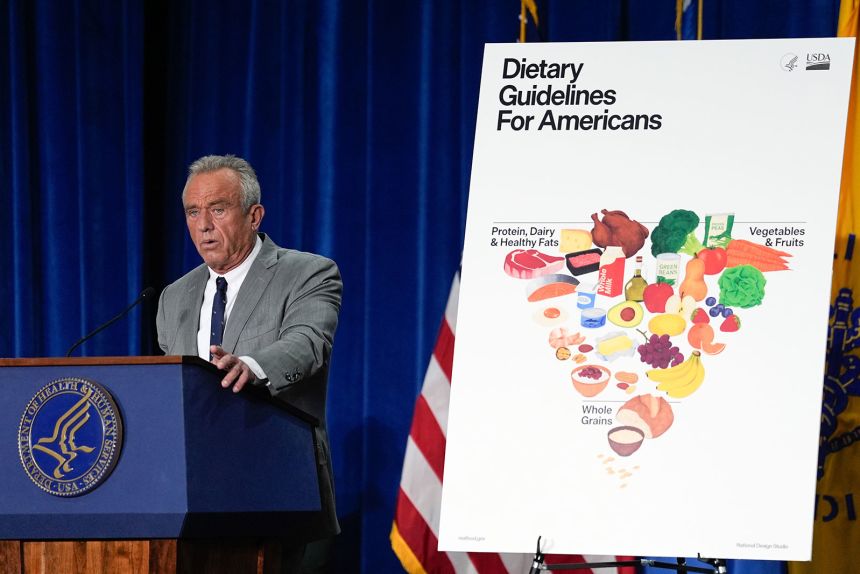The Florida restaurant scene is a hub of culinary creativity and lively social interactions, from high-energy nightlife venues to quaint eateries that offer a taste of local flavors. One of the most critical policies for restaurant owners, especially those serving alcohol, is Liquor Liability Insurance. While this is only one part of a robust insurance strategy, its importance cannot be overstated.
However, running a restaurant in the Sunshine State isn’t just about delivering memorable dining experiences—it’s about managing risks effectively. With the state’s unique challenges, including unpredictable weather and bustling tourist traffic, having the right insurance coverage is more than a necessity; it’s the backbone of a sustainable and resilient business.
This article explores the nuances of Liquor Liability Insurance and other essential coverages, helping restaurant owners build a shield against the risks inherent in the Florida market.
Why Florida Restaurants Need Comprehensive Insurance
Florida’s reputation as a global tourism hotspot comes with opportunities and responsibilities. On any given day, restaurants host locals, tourists, and business professionals, making safety and risk management a top priority. Here’s why tailored insurance policies are critical:
- Frequent Natural Disasters: Hurricanes and tropical storms can wreak havoc on properties, emphasizing the importance of policies that cover property damage and business interruptions.
- Tourism Traffic Risks: The high volume of visitors increases the likelihood of accidents, such as slips and falls or intoxicated incidents, which can lead to lawsuits.
- Alcohol-Related Liabilities: Restaurants serving alcohol face heightened risks of legal claims tied to intoxicated patrons causing harm to others.
Without proper insurance coverage, these risks can lead to significant financial strain, legal battles, and even business closure.
Liquor Liability Insurance: A Cornerstone Policy for Restaurants
For restaurants serving alcohol, Liquor Liability Insurance is not optional—it’s indispensable. This policy protects against claims resulting from alcohol-related incidents, such as a customer causing property damage or injury after drinking at your establishment.
Real-Life Scenarios
Imagine a scenario where a patron enjoys several drinks at your bar and later causes an accident. If they—or the affected party—trace the incident back to your establishment, your business could be held liable. Without Liquor Liability Insurance, the financial consequences could be devastating.
How Liquor Liability Insurance Protects Restaurants
Covers Legal Costs: If an incident leads to a lawsuit, this insurance ensures you’re not left footing the bill for attorney fees, court costs, settlements, or judgments. With legal expenses often reaching tens of thousands of dollars, Liquor Liability Insurance provides critical financial protection.
Pays for Medical Expenses: When an intoxicated patron causes harm to another person, such as in a car accident or altercation, the policy helps cover medical costs for the injured party. Without this coverage, restaurants may face out-of-pocket expenses that could severely impact their financial stability.
Preserves Business Reputation: Handling claims efficiently through insurance demonstrates your commitment to professionalism and customer safety. This level of accountability not only helps retain customer trust but also strengthens your restaurant’s reputation within the community and the industry.
Tips for Effectively Managing Liquor Liability Insurance
-
Train Your Staff in Responsible Alcohol Service
Ensure all staff members who handle alcohol are trained in responsible serving practices. Programs like TIPS (Training for Intervention Procedures) or ServSafe Alcohol can help employees identify intoxication levels, manage difficult situations, and reduce risks associated with over-serving.
-
Establish a Clear Alcohol Policy
Develop and enforce a written policy on serving alcohol, including age verification procedures, handling overly intoxicated customers, and guidelines for cutting off service. Make sure all staff are familiar with and adhere to these policies.
-
Monitor Alcohol Consumption
Implement strategies to monitor alcohol consumption, such as using standardized pour sizes, setting limits on the number of drinks per customer, and promoting non-alcoholic beverage options.
-
Maintain Accurate Records
Keep detailed records of staff training, incidents, and alcohol sales. These documents can serve as evidence in case of a claim or legal dispute.

Following these tips not only reduces risks but also helps demonstrate your commitment to safety, which can lead to lower insurance premiums and a stronger reputation. -
Verify Legal Drinking Age
Use reliable methods to verify IDs, such as ID scanners or ultraviolet light to detect fake IDs. Train staff to recognize signs of underage drinking.
-
Host Events Responsibly
If your restaurant hosts events where alcohol is served, ensure proper security and monitoring. Consider limiting access to certain areas or requiring wristbands for guests over 21.
-
Partner with Your Insurer
Work closely with your insurance provider to understand your Liquor Liability Insurance policy and identify any areas where coverage could be improved. Your insurer can also provide risk mitigation strategies tailored to your business.
-
Promote Safe Transportation
Encourage customers to use ride-sharing apps, taxis, or designated drivers. Displaying information about safe transportation options can help reduce alcohol-related incidents linked to your establishment.
-
Limit Discounts on Alcohol
Avoid excessive discounts or promotions, such as “all-you-can-drink” specials, which can encourage overconsumption. Instead, focus on specials for food and non-alcoholic beverages.
-
Review and Update Your Policy Regularly
Reassess your Liquor Liability Insurance annually or whenever your business undergoes changes, such as expanding your bar area or hosting new events. This ensures your coverage remains sufficient for your current operations.
Other Critical Insurance Policies for Florida Restaurants
While Liquor Liability Insurance is a cornerstone for establishments serving alcohol, a truly comprehensive risk management strategy requires multiple policies tailored to the unique needs of Florida’s vibrant and challenging restaurant industry. Here are additional essential policies every restaurant owner should consider:
1. General Liability Insurance
This foundational coverage shields your business from common risks, including bodily injuries and property damage. High foot traffic, especially in tourist-heavy areas like Orlando or Miami, increases the likelihood of incidents such as slip-and-fall accidents or damage to customer belongings. General Liability Insurance ensures that your business is prepared for these everyday risks, allowing you to focus on delivering an exceptional dining experience without worrying about unexpected legal claims.
2. Workers Compensation Insurance
Florida law mandates that businesses with four or more employees carry Workers Compensation Insurance. This policy provides critical coverage for employee injuries or illnesses sustained on the job, such as a server slipping on a wet floor or a chef experiencing a burn in the kitchen. Workers Compensation not only covers medical expenses but also provides wage replacement during recovery, ensuring both employee well-being and business continuity.
3. Business Owners Policy (BOP)
A Business Owners Policy bundles key coverages, including property insurance, general liability, and business interruption insurance, into a cost-effective package. This is particularly valuable for Florida restaurants, given the state’s vulnerability to hurricanes and tropical storms. A BOP can cover repair costs for property damage and compensate for lost income during temporary closures, helping businesses recover quickly and minimize downtime.
The Importance of Layering Coverage
Each of these policies addresses specific risks, but together they form a comprehensive safety net. For example, while General Liability Insurance protects against customer claims, Workers Compensation focuses on employee-related incidents, and a BOP provides resilience against natural disasters. This layered approach ensures that no critical aspect of your business is left exposed.
For detailed information about the types of insurance needed for small businesses, visit the Small BusinessAdministration’s Guide to Business Insurance. This resource provides valuable insights into selecting and customizing policies to fit your unique needs, making it easier to safeguard your Florida restaurant effectively.
The Implications of Not Having Liquor Liability Insurance in a Florida Restaurant
Operating a restaurant in Florida that serves alcohol without Liquor Liability Insurance exposes your business to significant financial and legal risks. Florida’s thriving tourism and nightlife industries attract a high volume of patrons, increasing the likelihood of alcohol-related incidents. If an intoxicated customer causes harm to themselves, others, or property after consuming alcohol at your establishment, your restaurant could be held legally and financially liable. Without insurance, you would bear the full cost of legal defense, medical expenses, settlements, or judgments, which can quickly escalate into tens of thousands of dollars or more.
Furthermore, the absence of this essential coverage can tarnish your business’s reputation, especially if an incident garners public attention. It also limits your ability to renew liquor licenses or partner with reputable vendors, as many require proof of sufficient insurance coverage.
For restaurants in Florida, a state known for strict liability laws and bustling social scenes, having Liquor Liability Insurance is not just a smart choice—it’s a necessity to safeguard your business’s future. For more insights on liability risks, visit the FloridaDivision of Alcoholic Beverages and Tobacco.
Practical Risk Mitigation Tips
- Train Staff in Responsible Alcohol Service: Educate employees about identifying signs of over-intoxication and how to serve alcohol responsibly. Programs like TIPS (Training for Intervention Procedures) are widely recognized and may even qualify your business for insurance discounts.
- Implement a “Cut-Off” Policy: Establish clear guidelines for refusing service to patrons who show visible signs of intoxication. This proactive approach can significantly reduce the risk of alcohol-related incidents.
- Display Visible Signs Promoting Responsible Drinking: Strategically placed signs encouraging customers to drink responsibly can reinforce your establishment’s commitment to safety.
For more detailed guidance on managing alcohol service risks, visit the National Institute on Alcohol Abuse andAlcoholism (NIAAA). Their resources provide in-depth insights into responsible practices that can complement your Liquor Liability Insurance coverage.
Building a Resilient Restaurant Business with Smart Insurance Choices

Florida’s restaurant scene is a dynamic mix of opportunity and challenge. From welcoming waves of eager tourists to navigating unpredictable weather events, success often hinges on preparation and resilience. For restaurant owners, securing the right insurance is more than a safety net—it’s a strategic decision that protects your investment, your team, and your reputation.
Why It Matters
Imagine an intoxicated patron leaving your restaurant and causing harm to others or property. Without Liquor Liability Insurance, the financial fallout—from legal fees to medical bills—could cripple your business. With this coverage in place, you’re not just protecting your bottom line; you’re demonstrating responsibility and professionalism to customers, staff, and licensing boards.
Maximizing Coverage and Savings
To fully safeguard your business, consider bundling Liquor Liability Insurance with other essential policies like General Liability and a Business Owners Policy (BOP). This comprehensive approach can provide layered protection while offering potential cost savings.
The Role of Sustainability
Sustainable practices, such as energy-efficient appliances and local sourcing, can make your restaurant more appealing to eco-conscious diners while potentially lowering insurance premiums. Insurers increasingly recognize the risk-reducing benefits of sustainability, offering discounts to businesses that adopt green practices.
For more tips on navigating restaurant risks and staying ahead in the industry, explore resources like the Small BusinessAdministration’s Restaurant’s website. With the right insurance strategy and a commitment to sustainable growth, your Florida restaurant can thrive for years to come.
Start the New Year Right: Protect Your Restaurant with CIS Insurance Solutions
As New Year’s Eve draws near, it’s time to ensure your restaurant is ready for all the opportunities and challenges the new year may bring. Make this season the moment you secure your business’s future with customized insurance solutions from CIS, Commercialize Insurance Services. Whether it’s protecting your establishment with Liquor Liability Insurance for building a comprehensive policy tailored to your needs, CIS is here to help you safeguard what matters most.
Take the first step toward a stronger, more secure 2025. Visit CIS’ Restaurant Insurance website to explore their restaurant insurance options and get a personalized quote today. Connect with them on Instagram, Facebook, and LinkedIn to stay informed and inspired. Let CIS be your partner in ensuring your restaurant’s success and resilience in the year ahead.
FAQs About Florida Restaurant Insurance
- What does Liquor Liability Insurance cover?
It covers claims related to alcohol-related incidents, including legal fees and medical expenses. - Are there discounts for responsible alcohol training?
Yes, many insurers offer lower premiums for establishments that train staff in responsible alcohol service. - How can eco-friendly initiatives lower insurance costs?
Sustainable practices like using energy-efficient appliances reduce risks, which insurers may reward with discounts. - Is Workers Compensation mandatory in Florida?
Yes, for businesses with four or more employees, it’s a legal requirement. - What’s the average cost of Liquor Liability Insurance?
It typically ranges from $400 to $3,000 annually, depending on factors like location and business size.
By incorporating these insights and securing robust insurance coverage, you can set your restaurant up for a thriving future in Florida’s competitive dining landscape.





